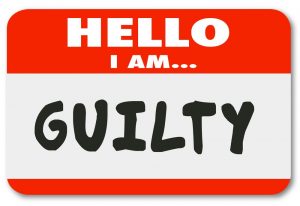You may regularly inspect your rental property units to see if repairs or maintenance are needed. But you should also know how to assess whether your tenants are doing and how to stop illegal activities or crimes in your rental units. You can download a Notice to Enter the dwelling unit from our website that complies with Civil Code Section 1950.5. You can download the form from our website by downloading the form by clicking here.
If you’ve been in the landlord business very long, you know how necessary it is to conduct background and identity checks to gauge whether would-be tenants are reliable and worthy of your trust. A background check can help you weed out tenants who would cause problems, but it may not eliminate all the bad renters. Some tenants may have gotten away with activity at prior rental units or in life that does not show up on a background check.

If you do get a bad renter or tenant, there are steps you can take to assess what they’re doing wrong after they move in. We’ll explain which activities may be suspicious or even illegal and how to assess whether those activities are happening on your properties. Further, you should know what your responsibilities are with respect to criminal acts on your rental property and how to prevent them.
Four broad categories of illegal activities
- Abusing drugs, selling drugs, manufacturing methamphetamine or growing marijuana are common types of illegal activities that can happen on rental properties. You may get a tenant who had never been caught doing any of these crimes by authorities or prior landlords, and thus it was not reflected in a background check. Tenants dealing, or growing drugs can cause legal problems for landlords. Illicit drug activities can also physically damage your unit, affect its value and give the landlord a bad reputation. If you learn a tenant is doing drug cultivation, manufacturing, smuggling, sales or abuse, the only good course of action is to evict them.
- It is important that landlords beware of fraud issues while deciding whether to rent to prospective tenants. Do thorough background checks and take the little bit of extra time to talk to references.
- It doesn’t take very long to make a phone call to references to see if the prospect was a good tenant at other places he lived. And it can save landlords a lot of money and headaches. The landlord and even his other renters and people in the neighborhood could be exploited by fraudsters. Don’t open yourself up to liability. Simply doing thorough background checks can afford a landlord some legal protections.
- Some types of activities that fall under the heading of anti-social behavior can be hard to categorize or understand. If a tenant is verbally abusive, threatening or harassing, or does vandalism or dumps garbage, these are grounds for eviction. If a tenant actually does violence or assaults, it is in a landlord’s best interest to initiate eviction immediately. If they are in a multi-unit building like an apartment building, or even a duplex, triplex or fourplex, then you will owe a duty to protect the other good tenants.
Subletting is in a gray area. It may not be illegal unless tenants sublet without your knowledge or consent. If they sublet but don’t let you know about it, you could have grounds for eviction. Subletting can cause problems if you want to increase rents. Spell out in the lease agreement whether you allow subletting and under which conditions. If you allow subletting, put a clause in the rental contract saying you have to be notified about it.
Specific types of suspicious activities
If you see a sudden upswing in criminal activities in your apartment complex or property grounds or in the neighborhood after you rent to a new tenant, by all means do a full background check if you have not done so already.
There are several behaviors that can be telltale signs of illegal behavior. Watch for:
- Suspicious or unusual odors: A tenant who deals in drugs usually generates strange or unusual smells from the cultivation, manufacture or use of the drugs.
- Tenant isolation: If the tenant stays mostly inside the rental house or apartment and has the curtains drawn or glass of the windows tinted, if they are aloof or don’t take their garbage out for a long time, be alert to illegal or suspect activity.
- Excessive traffic: If your new tenant has a lot of visitors or traffic to the rental unit, this is a big tip-off. Vehicles may come to the parking lot or park on the street briefly. Very expensive vehicles might start showing up. Or if a tenant comes outside and talks to people in vehicles a lot, your suspicions should be aroused. The tenant very well could be dealing in drugs. Your good tenants don’t want neighbors who are drug dealers. Other types of criminal or suspicious activities very well may follow if controlled-substance crimes are happening.
- Bright lighting: People use bright lighting to cultivate marijuana indoors. The brightness makes the plant grow faster. The light may be similar in color to sunlight. If the tenants don’t try to hide this, light may spill out into the street or hallway. We advise you to take action immediately if you notice unusual bright lighting in your rental units. A lot of bright lighting can use excess electricity and be costly if you include utilities in the rent.
- Methamphetamine: Landlords need to do regular inspections of properties to protect their tenants and their own self-interest. If a tenant uses your rental unit to cook meth, as it is called, there is a danger of explosions or fires. Also, the toxic residue can seep into the floors, ceiling and walls and can be impossible to detoxify. Your unit could be condemned by the authorities. It is very common for rental units to be used as methamphetamine laboratories. Be careful and watch for all of these warning signs.

How to prevent illegal activities
To prevent illegal activity, involve the property manager if you do not manage the facility yourself. Make sure the manager is paying close attention to all the activities going on at your property. Let your property manager know which suspicious activities to watch out for, and make sure he actively looks out for them. If you have a team of people who manage the property, do not just make the supervisor aware of what to watch for. Let the whole team know how to look out for criminal and/or suspicious behavior by your tenants.
Periodic inspections of the rental units can help keep suspicious or illegal activities at a minimum. Inspect even if you don’t suspect something wrong is going on. Give the tenants a schedule of when you are going to inspect.
But as you no doubt know; unannounced inspections are not legal. You could get in trouble with the law if you make surprise inspections. It may be necessary to serve your renters with a Notice of Entry, which is done in accord with California law.
See the California Code for the specific conditions by which a landlord’s notice of entry can be served, but in general the law allows landlords to inspect under certain circumstances:
- In case of emergency.
- To make agreed-upon or necessary repairs.
- If the tenants abandons the property.
- If a court makes an order to do so.
- A landlord may inspect for any valid reason, but proper notice to enter must be served if there are no repairs that need to be made, if there is no emergency or if the renter denies the landlord entry. Inspections may not be done to harass renters. The notice must be made in writing and legally served or posted with the date, time and purpose of entry. The notice can be handed directly to the tenant or taped on his door or slid underneath the door. Or someone of suitable age may be told about the landlord’s intent to enter. If the landlord mails the notice, he must give a six-day notice.
If you know your tenant is breaking the law

If you’re certain your property has become a place where illegal activities are done, you should call the police or sheriff’s office, depending on which agency has jurisdiction. Do not under any circumstances confront criminal tenants. You could be putting yourself in danger. If you involve the authorities you can avoid trouble for yourself and may prevent your self being held liable for criminal behavior by your tenants.
If you, the police or witnesses have clear proof that your tenants are committing crimes on your property, in your rental unit, you should make a move to evict them. As soon as you know about crimes on your property, it is incumbent to act so you don’t encounter legal problems if someone gets abused, injured or killed.
It is possible that you could face lawsuits or other legal actions if you allow your property to be used for criminal acts after you learn they are happening. In other words, if you know someone is doing something wrong and you do nothing to evict them and stop that behavior, you could be held liable and actually might have to pay damages.
Expedited or speedy evictions
Sometimes expedited or speedy evictions are all called for, depending on what type of illegal activity the tenant is engaging in. Check with the rental authorities, but if there is criminal activity, the type of eviction notice that you may need to file is a 3-Day Notice to Quit, according to the California Courts website. To quote, this notice may be filed if the tenant has been a regular problem and:
- Causes or allows a ‘nuisance’ on the property;
- Uses the property to do something illegal (like sell drugs);
- Threatens the health and safety of other tenants or the general public;
- Commits waste (damage) that lowers the value of the property significantly; or
- Moves in other tenants (subtenants) without the landlord’s permission.
There are four other types of eviction notices for other situations, but this is the one landlord’s use when they discover some illegal activity is happening on their properties.
A lawyer well-versed in eviction law knows exactly what type of eviction proceeding you need to undertake, how to write it up and has the personnel to serve notice on the tenant and then represents you, the landlord, in court. If you act quickly to evict a tenant with the help of an attorney, you can sometimes save yourself money even though the attorney charges a fee to help you evict a problem tenant. The sooner you get a problem tenant out, the sooner you can get a good tenant who pays the rent on time, doesn’t cause trouble and never commits any crimes.
Express Evictions does the entire eviction process for a fee. Our lawyers consult with you, the landlord, about your problem tenant. We determine which type of eviction proceeding you need, write up the proper eviction notice(s) to serve and serve them on the tenant. We then represent you in court if the case becomes contested and we need to go to a bench trial or a jury trial. All you do is notify us of who the tenant is, where he/she lives and why you want to evict them. We will help you figure out the best way to terminate their tenancy.
There may be reasons that landlords have for evicting tenants and wanting them gone even if they haven’t broken the law. Tenants may not have violated the lease agreement or done crimes or harassed anyone, but the landlord for some reasons sees them as undesirable. (Note: Race, religion, nationality or other similar cases are not valid reasons for evicting.) If landlords always have fixed-term leases that end, say, after a year, the agreement is then month to month.
All of the terms and conditions of the yearly lease still apply if the tenant holds over on a month-to-month basis (see Civil Code 1945). That is, if the lease agreement said no pets and no subletting, those conditions still apply on a month to month basis. Just because the term of the lease ends, for example a 1 year lease ended, the terms and conditions of the lease continue after the expiration of the lease.
You can always protect yourself from bad tenants by having a fixed-term lease that ends on a certain date. After the end of the fixed term, the landlord and tenant can part ways, or go on a month-to-month basis or sign a new lease. If they were bad tenants and you have this fixed-term clause in the lease, you are not obligated to keep them on after the term of the lease ends and you can start an eviction or Unlawful Detainer the day after the end of the lease. And you can ask them to leave at any point once the tenant is on a month to month basis with the proper notice. A 30 Day notice to terminate tenancy is required if the tenant has lived in the property for less than one year and a 60 day notice to terminate tenancy is required if the tenant has lived in the property for over one year.
For help with an eviction or questions about how to further protect your rights, do not hesitate to contact us today.
